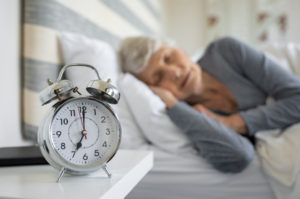
I know it seems blasphemous to suggest that not all sleep is good sleep. But new research is showing a close link between regular naps, heart disease, and early death.
How can this be?
It likely isn’t the nap itself that is harmful. Instead, it is the reasons behind the need to nap that are cause for concern.
Before continuing, let me point out that not all naps are bad. Sometimes you need to make up for lost sleep. The occasional late night or poor sleep can leave you feeling fatigued a day or two later.
Catching a 20–30-minute nap or going to bed early on occasion can help pay sleep debt.
When extended naps become a regular occurrence, however, it could mean that you’re not getting quality sleep during the night. The need to go down for an hour or more each day is a sign that you could be suffering from sleep apnea.
A Chinese research team looked at data from 20 studies involving 313,000 participants and found that regular naps longer than one hour were associated with a 34% higher risk of heart disease and a 30% greater risk of death.
Interestingly, the people napping reported getting at least six hours of sleep each night. Tack on the extra hour or more of napping, and they are theoretically meeting the requirement for 7+ hours of sleep per day.
But sleep quality is just as, if not more, important as sleep duration. Being in bed for seven hours is not the same thing as sleeping for seven hours.
Interrupted sleep cuts of your body’s ability to reap the rewards of sleep. Poor sleep can’t restore and rejuvenate, leaving you tired and fatigued the next day. It can also impact your risk for chronic conditions like high blood pressure and heart disease.
Sleep apnea causes major disruptions to sleep. It is marked by “micro awakenings” that don’t register with sufferers, allowing them to believe they have slept soundly.
These tiny awakenings, caused by insufficient airflow, can occur hundreds of times throughout the night.
If you find yourself napping daily for extended periods, particularly if you’re over the age of 60, take a look at your sleep habits. Clean up sleep hygiene if necessary, and book an appointment with a sleep specialist to see if you’re affected by sleep apnea.